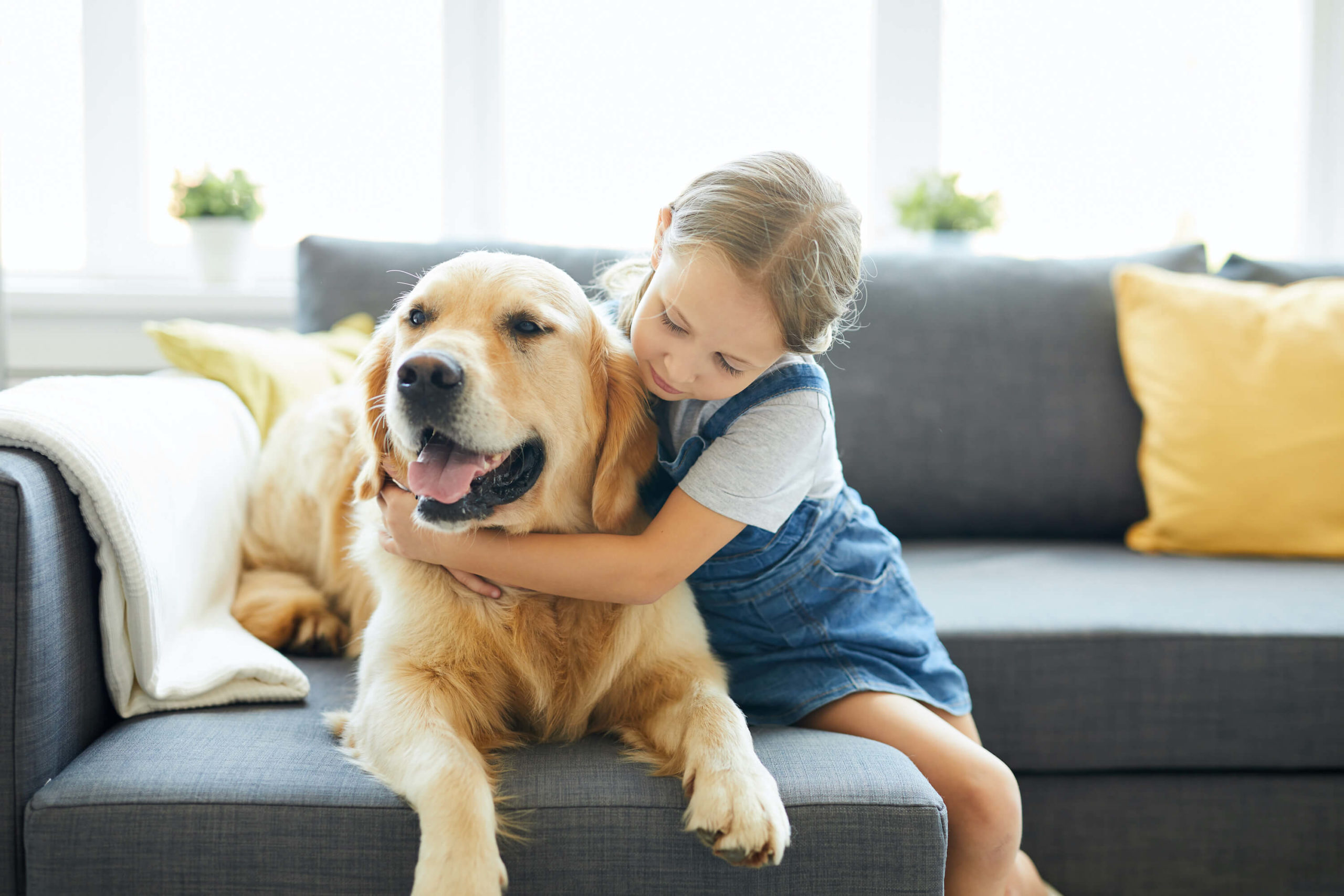
The Best Pets for Kids, According to a Vet
Most of us have fond memories of begging and pleading for our very own pets as wee children. A built-in friend with stellar listening skills is one of life’s greatest pleasures at any age.
Whether your kid is interested in a classic dog or something a little more exotic like a lizard, a pet can add abundant value and happiness to those formative childhood years. They’re a natural teaching tool, promoting responsibility and even empathy as they learn to care for their new sidekick. Plus, they can be a source of endless entertainment in lieu of the television or iPad.
Anyone that’s taken care of a pet knows that it isn’t all unicorns and rainbows, though. Animal family members, although rewarding, also come with a fair amount of duties and commitment. It’s important to make the right choice in finding a good match for your kid, and family, as a whole. When making a decision, research is key, as well as considering various factors like space, life span, temperament, and care requirements.
Think about how much time your family is able to devote to a pet, as well as if you have the physical space to accommodate their energy levels. Are you equipped to juggle a higher-maintenance animal that requires more attention, or would something more low-key be a better fit for your family’s schedule?
Considering an animal’s life span and how you’ll handle the subject of death with your kid is another factor to think about. Plus, if there are allergies in the family, some pet options will likely be off the table completely, or, at the very least, narrow your search down.
We spoke with veterinarian Dr. Heidi Gordon to get the lowdown on the best pets for young kids to help you find the right fit:
Fish: the easy starter pet for any age
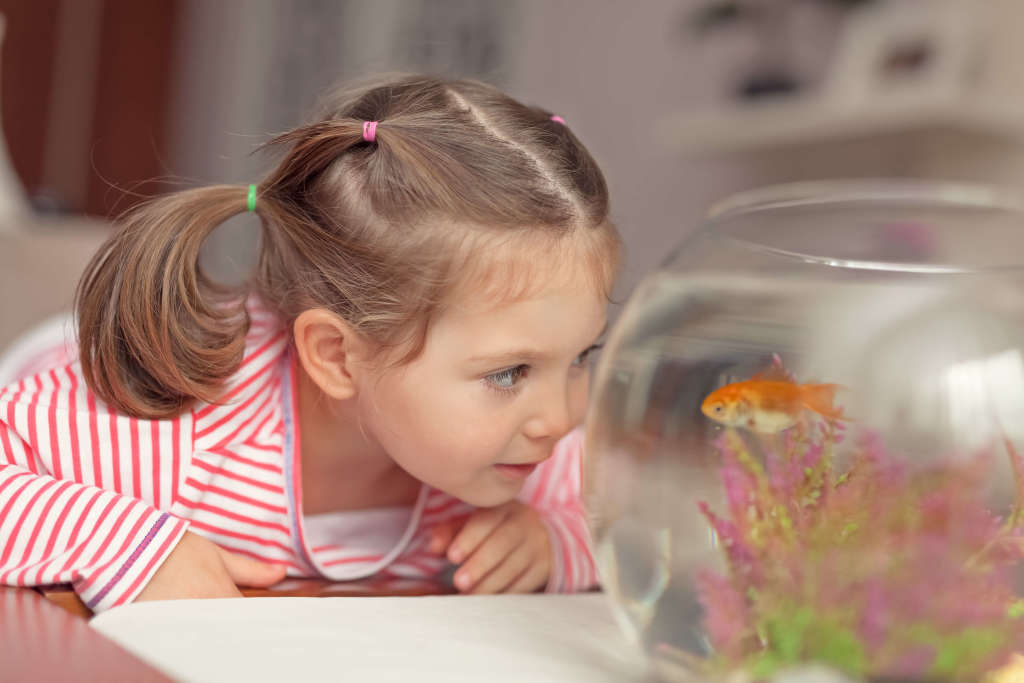
Perhaps the most simple “starter” pet, fish can be mesmerizing to look at while providing the opportunity to learn basic pet responsibilities and care tasks in baby steps. They’re a great way to ease into the world of pet ownership, and a reasonable jumping-off point for getting a bigger animal in the not too distant future. They might not be able to do tricks, but a fish might just buy you a year or two before moving on to a bigger pet.
Dogs: the closest thing to a new family member
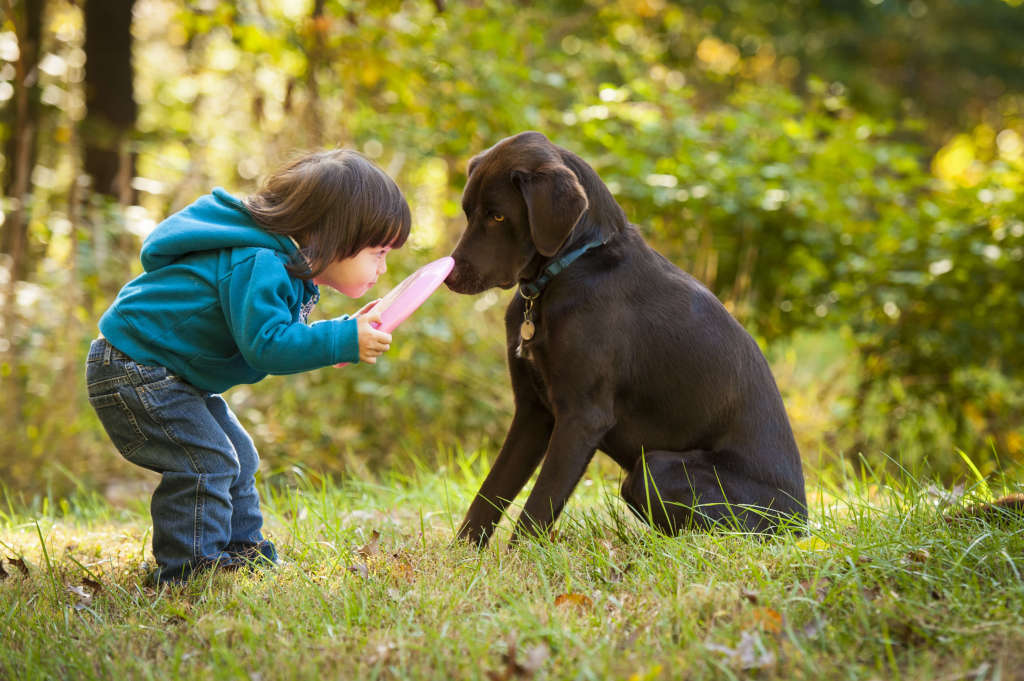
Bringing home a dog is pretty much as close as you can get to adding another family member. They’re one of the most popular pets for young kids. With so many different breeds, it’s easy to find a fantastic match for your family. Depending on the age of your kids, finding a breed that can handle their rambunctious or testing nature is crucial. Although they can be a lot of work, the benefits of receiving unconditional love from a dog can be so rewarding that they may just outweigh that surprise vet bill.
When researching breeds, you’ll want to find one that’s a healthy balance of playfulness, gentleness and willingness to deal with some of those kid-induced antics. If you have young children, picking a breed with a decent amount of patience and/or pain tolerance for kids that like to pull their fur or lay on top of them is key. They’ll need to be able to deal with a kid’s unpredictable nature; here’s looking at you, toddlers.
“Any breed of dog old or young that is trained appropriately with a young child can be a great experience for a kid to grow up with. Some of my favorite breeds to recommend to families are Cavalier King Charles Spaniels and Golden or Labrador Retrievers,”
Dr. Gorden
Here are a few great dog breeds for kids to get the ball rolling:
- Spaniels: big on companionship and eager to play and please.
- Golden Retrievers: patient, calm, and playful.
- Labrador Retrievers: they’re ready to be the sidekick for all of your kid’s adventures.
- Golden-Doodle or Poodle Mix: great hypoallergenic choice mixed with minimal shedding and a sweet-tempered mannerism.
Cats: a more self-sufficient sidekick
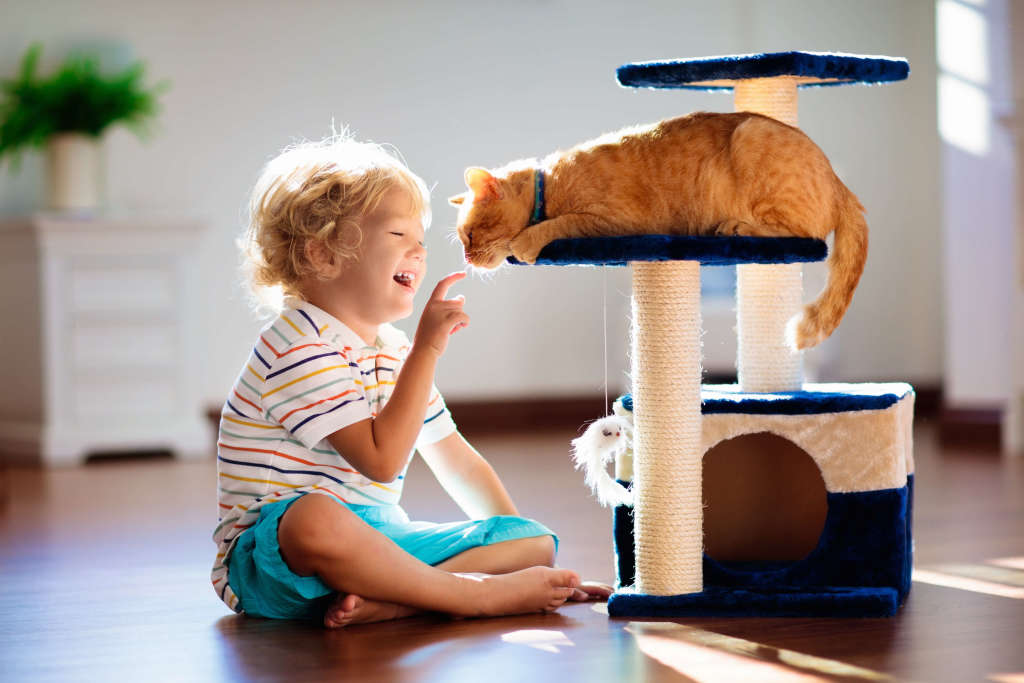
Definitely one of the classic pet choices, cats can be a welcome addition to the family, provided they are a good match. “Kittens that are raised being handled by kids can be good companions. Most cats do really well with kids, but can be more challenged by toddlers,” says Dr. Gordon. They’re a bit more self-sufficient and don’t require as much space or attention as a dog. So, leaving them alone while everyone is at work or school is just fine. On the other hand, it’s a lot harder to take a cat on a hike, or to play fetch with a stick in the lake than it is with the barking variety of pet pals.
When deciding between cat and dog, landing on a solid match between your kid’s personality and your soon-to-be pet is a game-changer. If you’ve got sports-loving kids on your hands with a bottomless energy supply, a labrador retriever might be the best fit. If your child is independent by nature, a cat might be their soulmate.
Reptiles: a low-cost, low-maintenance option
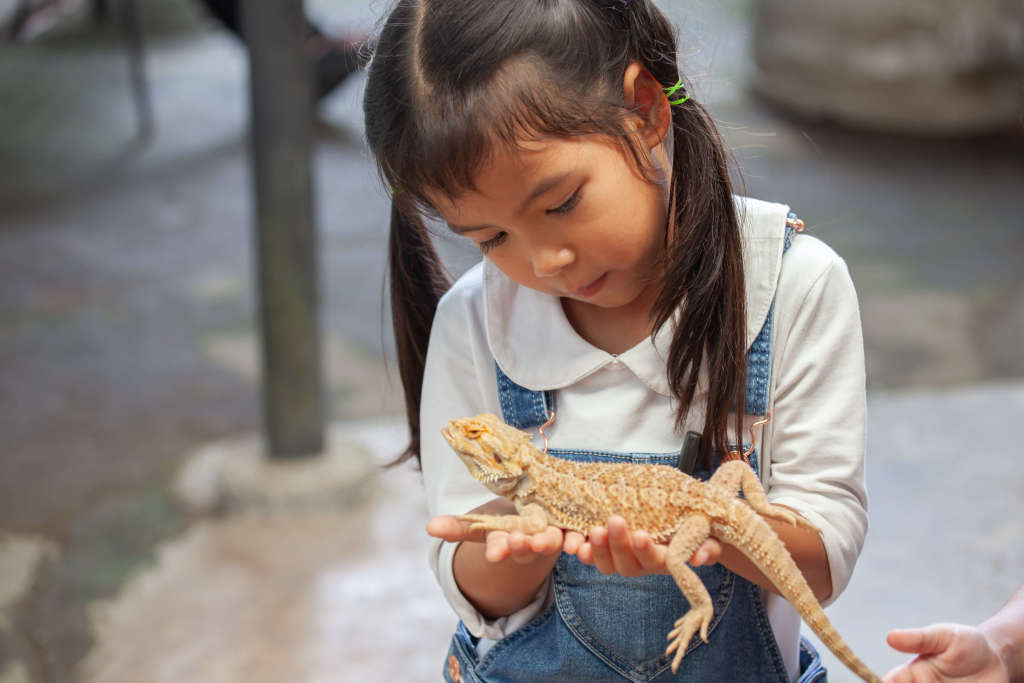
A cage-dwelling reptile like a tortoise or lizard is another great choice if you’re looking for a small pet that won’t rack up the pet food bills. Once you purchase the initial housing equipment, they are relatively low-cost and simple pets to keep. For kids, reptiles can be an awesome learning tool about different species as well as interesting to observe their behavior. Greek tortoises or crested geckos are good options for kids as they don’t mind being handled.
Birds: a manageable companion for older kids
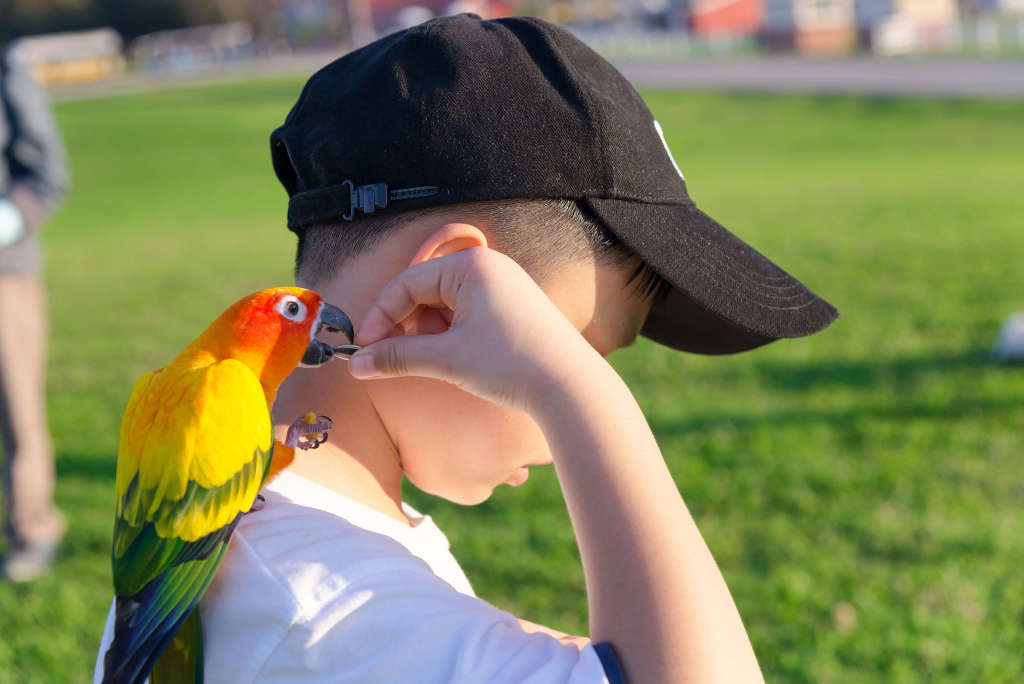
On the more manageable end, birds can be a solid choice as well since they’re mostly contained in a cage. These are usually a better option for older children. Birds like canaries or parakeets can be fun for those youngins that are on the quieter side vs. active, outdoorsy types. Beware that if you get a bird that speaks and repeats. You may have more than one small member of your family talking back to you!
Rodents: small pets with big personalities
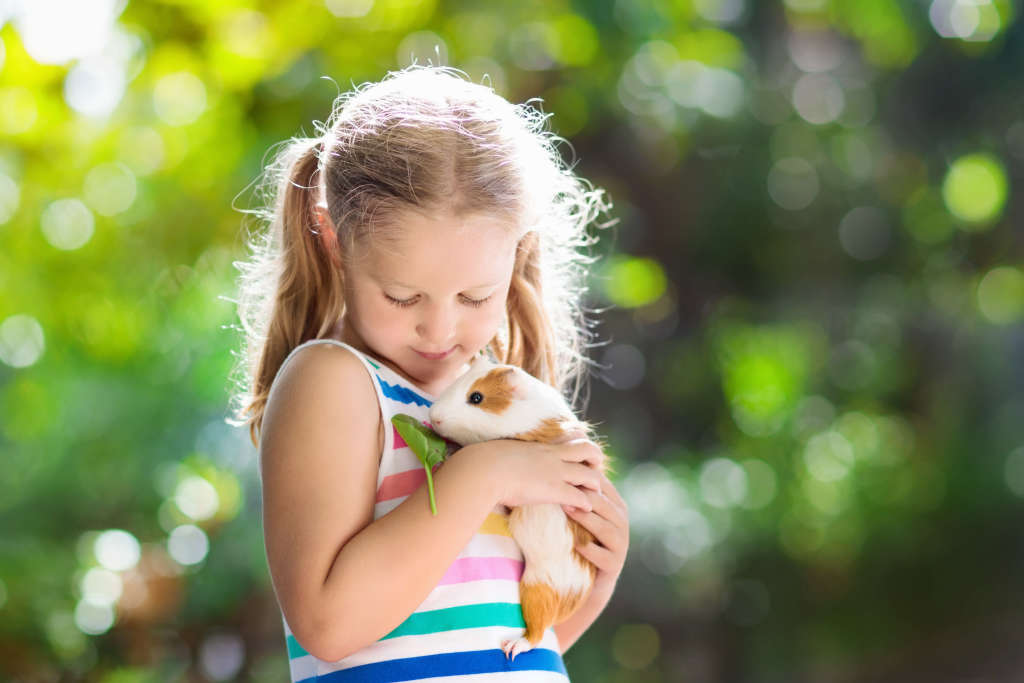
No, not necessarily mice or rats, but rather the more appealing hamsters and guinea pigs. These could also be a decent first pet option to help teach responsibility without getting in over your head with a bigger animal commitment. “Small pocket pets can also be great pets for kids. Younger kids can take on a lot of responsibility for caring for hamsters and guinea pigs. Since they are smaller they can be easily handled.” Dr. Gordon shared. Guinea pigs tend to be a bit more sociable. They likely won’t mind being handled if your kid wants to take the little furball out to play more often than not.
Without even knowing it, pets can play a vital role in promoting a joyous, calm and loving environment for your kid.
“For many people, pets are the most steadfast, least complicated relationships in their lives,” says Dr. Terwilliger. “They are, almost without fail, happy to see us, regardless of our mood. They offer tactile comfort and physical connection in a way that we can’t share with most people.”